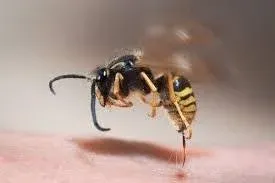Spider bites can range from minor skin irritations to more concerning reactions. While most bites from common household spiders are harmless and heal on their own, there is always a possibility of infection. Knowing the signs early can help prevent complications and ensure proper treatment. This article explains whether spider bites can cause infections, which symptoms to watch for, and how to care for a bite safely.
Can Spider Bites Cause Infections?
Yes, spider bites can cause infections, especially if the skin is broken or scratched. The infection doesn’t usually come directly from the spider’s venom but rather from bacteria entering the wound. Scratching the bite, improper cleaning, or delayed treatment can increase the risk of infection.
Although many spider bites remain mild, some—such as those from venomous species like the brown recluse or black widow—can damage skin tissue, making infection more likely.
Common Symptoms of an Infected Spider Bite
An infected spider bite usually develops gradually. Here are the key symptoms to watch:
Increasing redness that spreads beyond the bite area
Swelling and warmth around the site
Pain or tenderness that worsens instead of improving
Pus or discharge from the wound
Itching that becomes severe and doesn’t go away
Fever or chills, indicating the infection may have spread
Swollen lymph nodes, particularly in the armpits or groin, depending on bite location
If you notice one or more of these signs, it’s important to monitor the bite closely and seek medical care if symptoms progress.
When to Seek Medical Help
Not all spider bites need a doctor’s visit, but professional care is crucial if you experience:
Rapidly spreading redness or streaks on the skin
Severe pain unrelieved by over-the-counter treatments
Difficulty breathing or swallowing (possible allergic reaction)
Ulceration or tissue breakdown around the bite
High fever or body aches
These symptoms may indicate a serious infection or venomous spider bite, both of which require prompt treatment.
How to Prevent Infection from a Spider Bite
Taking the right steps after being bitten can lower your risk of infection:
Clean the bite immediately with soap and warm water.
Apply an antiseptic cream or ointment to kill bacteria.
Keep the bite covered with a clean bandage, especially if you are outdoors.
Avoid scratching, as this can break the skin further.
Apply ice packs for 10–15 minutes to reduce swelling.
Change bandages daily to keep the wound clean.
If the bite worsens despite these measures, consult a doctor promptly.
Treatment Options for Infected Spider Bites
If an infection develops, treatment may include:
Antibiotic creams or ointments (for mild infections)
Oral antibiotics prescribed by a doctor (for moderate to severe infections)
Pain relievers like ibuprofen or acetaminophen to ease discomfort
Warm compresses to improve circulation and promote healing
Drainage procedures (in rare cases) for abscesses
Final Thoughts
So, can spider bites cause infections? The answer is yes—but most infections occur due to bacteria entering the wound, not from the bite itself. By recognizing the symptoms early and practicing proper wound care, you can prevent serious complications. Always pay attention to spreading redness, pus, or fever, as these are red flags for medical attention.
Most spider bites are harmless and heal within days, but when infection sets in, timely care is essential. With proper cleaning, treatment, and vigilance, you can ensure safe recovery and peace of mind.






